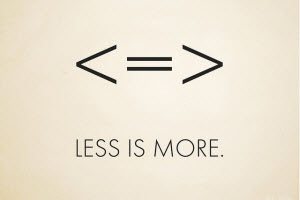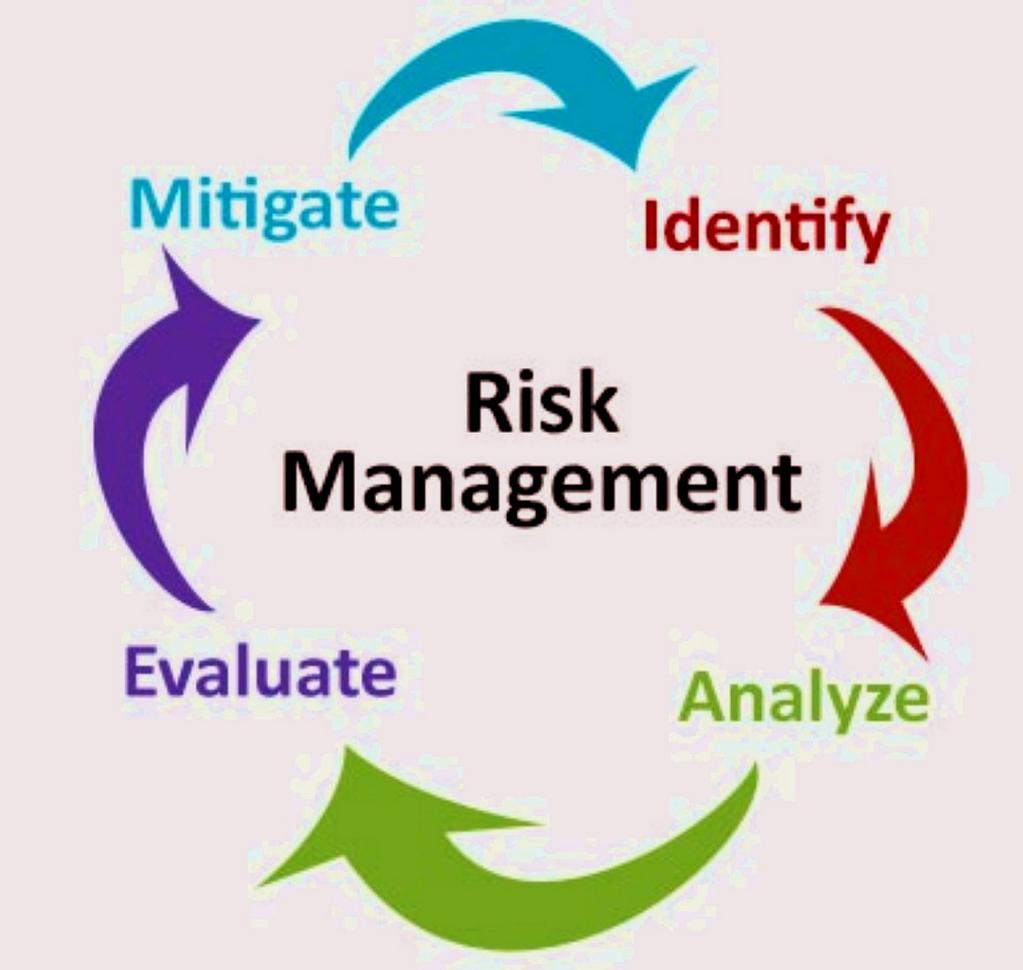
In The Markets :Less = More. Less positions, risk, decisions, hours at the screen and opinions of others = More Money


 Risk is a very negative word for many, but as a trader you have to face financial risk (even ruin for some kamikaze traders) every day. But to make a living trading stocks you have to face risk in a bold way. IMO, the greatest opportunity for success goes to those who are not afraid of taking risks and at the same time managing risk in a proper way (and knowing excessive risk may lead to total ruin). By that you have to analyze risk in accordance to potential reward and to feel a little bit of fear. Success may come to those without fear, but many of the fearless have fallen by the wayside (and we never hear about them).
Risk is a very negative word for many, but as a trader you have to face financial risk (even ruin for some kamikaze traders) every day. But to make a living trading stocks you have to face risk in a bold way. IMO, the greatest opportunity for success goes to those who are not afraid of taking risks and at the same time managing risk in a proper way (and knowing excessive risk may lead to total ruin). By that you have to analyze risk in accordance to potential reward and to feel a little bit of fear. Success may come to those without fear, but many of the fearless have fallen by the wayside (and we never hear about them).
Actually, the biggest risk is not taking any risk! If you want to make money trading, you have to take risk. There is no way you will make money by being risk-averse.
That also means not afraid of looking stupid. Remember that learning is inhibited by caution and experimentation. Children who are afraid will never learn. Children with totally risk-averse parents will struggle in an uncertain world. Children are in general not afraid of looking stupid and they are therefore much more adaptive than adults. Just look at how easy they learn a new language. (more…)
Consider an excerpt:
WSJ: What do you mean by emotional finance?
PROF. TUCKETT: What we try to do in emotional finance is start with the fact that the future is unknowable. The key thing about uncertainty is that it inevitably generates feelings. Because it matters to you, because your money’s on the line, so to speak, you’re bound to feel emotionally engaged.
WSJ: Some people think pros are more rational than individual investors.
PROF. TAFFLER: Although most of the fund managers we interviewed saw part of their particular competitive advantage as remaining, as they described it, unemotional or rational, in practice they were just as emotional as anyone else when they started to talk about the stocks they had invested in. There were lots of examples where they referred to them almost as if they were lovers.
If you’re entering into an emotional relationship with a stock, an asset or a company that can let you down, this leads to anxiety, which is often not consciously acknowledged. But it’s there, bubbling beneath the surface.
1) Strategy – There are so many different strategies: value, growth, momentum, short selling, etc. Find one that fits your personality and do your best to master it. The fastest way to learn is to study success. In other words, find someone who is successful at the strategy you like, and then mimic them with your own style. Another key is to recognize when the market environment is not conducive to your strategy, and make the proper adjustments.
2) Confidence – If you don’t have confidence, you have very little chance of succeeding. This doesn’t just apply to trading, it applies to EVERYTHING in life (business, athletics, relationships, etc.). With regards to trading, you have to believe in what you are doing and not be afraid to make mistakes. The key is to learn from them, make adjustments, and constantly reevaluate your progress.
3) Product Focus – There are so many different trading vehicles: futures, commodities, currencies, stocks, bonds, options, etc. It’s ok to dabble in a few things at first, but eventually you need to find out what product works best for you, focus on it, and MASTER it. As they say, don’t be a “jack of all trades and master of none.”
4) Know Your Time Frame – You must find a time frame that fits your personality. If you are too nervous, maybe short-term trading isn’t for you. Everyone wants to make tons of money in the market really fast, but keep in mind that is not a healthy approach. Most people with this mindset tend to be “boom and bust” traders. They make a bunch of money and eventually blow up. If you are truly passionate about trading and hope to be in the game for a long time, I recommend focusing on a slow and steady approach. (more…)
Trade the market, not the money
• Always trade value, never trade price
• The answer to the question, “What’s the trend?” is the question, “What’s your timeframe?”
• Never allow a statistically significant unrealized gain to turn into a statistically significant realized loss (ATR)
• Don’t tug at green shoots
• When there’s nothing to do, do nothing
• Stop adjustments can only be used to reduce risk, not increase it.
• There are only two kinds of losses: big losses and small losses, given these choices – always choose small losses.
• Risk no more than 1% of AUM on any single position
• Never risk less than 1% of asset under management on any single position (as long as your models are performing well)
• Don’t Anticipate, Just Participate
• Buy the strongest, sell the weakest (RSI)
• Sideways markets eventually resolve themselves into trending markets and vice versa
• Stagger entries & exits – Regret Minimization techniques
• Look for low risk, high reward, high probability setups
• Correlations are for defense, not offense
• Drawdowns are for underleveraged trading and research
• Develop systems based on the kinds of “pain” (weaknesses) endured when they aren’t working or you’ll abandon them during drawdowns.
• Be disciplined in risk management & flexible in perceiving market behavior
• It’s not about the best RAROR, it’s about the best RAROR for your trading personality
1) Have a firm stop-loss point for all activities: jobs, relationships, and personal involvements. Successful people are successful because they cut their losing experiences short and ride winning experiences.
2) Diversification works well in life and markets. Multiple, non-correlated sources of fulfillment make it easier to take risks in any one facet of life.
3) In life as in markets, chance truly favors those who are prepared to benefit. Failing to plan truly is planning to fail.
4) Success in trading and life comes from knowing your edge, pressing it when you have the opportunity, and sitting back when that edge is no longer present.
5) Risks and rewards are always proportional. The latter, in life as in markets, requires prudent management of the former. (more…)
1. Always insist on a margin of safety
2. This time is never different
3. Be patient and wait for the fat pitch
4. Be contrarian
5. Risk is the permanent loss of capital, never a number
6. Be leery of leverage
7. Never invest in something you don’t understand

 Everyone knows that chasing price is usually not beneficial, we either end up catching the move too late, or we get poor trade location, which makes it more difficult to manage the trade.
Everyone knows that chasing price is usually not beneficial, we either end up catching the move too late, or we get poor trade location, which makes it more difficult to manage the trade.
However, there are other forms of chasing that are just as common, maybe more common, and just as counter-productive. As a trading psychologist I see these all the time.
Traders who are not profitable are often too quick to chase after new set-ups and indicators, or a different chat room, if that’s your thing. Obviously, we need to have a trading edge, whether it is from the statistical perspective of a positive expectancy, or simply the confidence in a particular discretionary strategy such as tape reading, following order flow, market profile, etc.
Chasing a trade is the fear of missing out. The fear of missing out is associated with various emotions, including regret. In my work with traders and in my own trading, I’ve seen the incredible power of regret. There’s a lot of talk about fear and greed in trading, but the power of regret is often overlooked. Some of my own worst trades, and those of my clients, often have a ‘regret from missing a prior opportunity’ component. When I finally finish my book on the psychology of financial risk taking, I will include much about this overlooked but very powerful emotion. (more…)